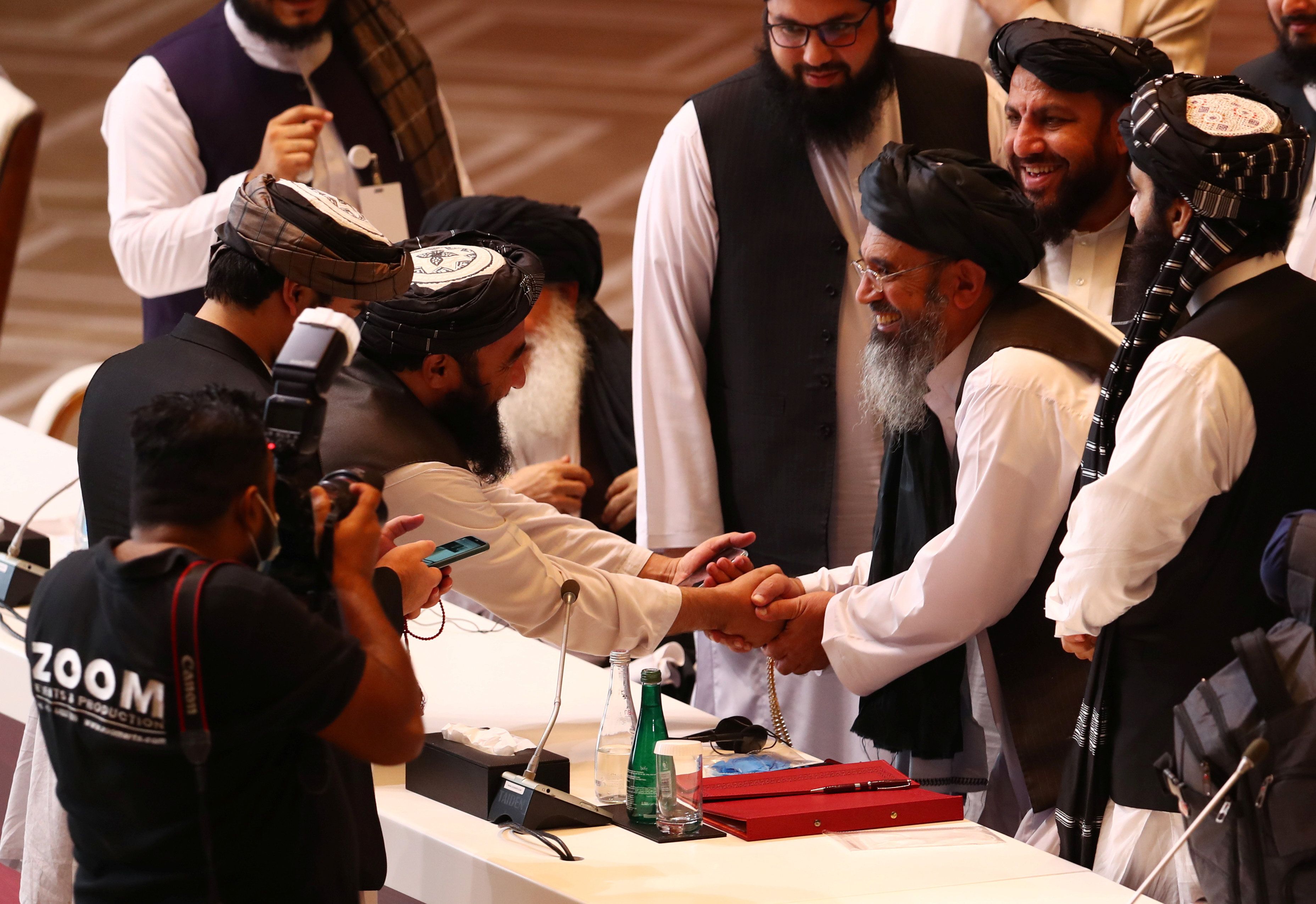Afghanistan peace talks kick off: Months of political wrangling and impasse dashed hopes of reconciliation in Afghanistan, but now expectations have risen again after historic intra-Afghan peace talks kicked off Saturday in Doha, the Qatari capital. These direct negotiations — the parameters of which were set out by the Taliban and the US government earlier this year — symbolize the first time the Afghan government and the Taliban are sitting down face-to-face since the US invasion two decades ago, in the hopes of establishing a power-sharing arrangement to end decades of violence. The Taliban, which subscribe to an extreme Islamic political ideology, have long deemed the US-bolstered Afghan government as illegitimate. But now, in showing a willingness to engage directly, the Taliban are offering the Afghan people — 90 percent of whom live below the poverty line — a (small) glimmer of home regarding the prospect of reconciliation. Still, divisions persist between the two sides on major issues including the role of religion in society, women and minority rights, and ongoing insurgent violence. Complicating matters further, this all comes as the Trump administration says it will withdraw thousands of US troops from Iraq and Afghanistan by November.
Israel, Bahrain establish diplomatic ties: After weeks of speculation following the historic peace deal signed between the United Arab Emirates and Israel, the Persian Gulf kingdom of Bahrain has followed suit in normalizing ties with the Jewish state. The Israel-Bahrain deal, also brokered by the Trump administration, formalizes relations between the two sides that have been warming behind closed doors for decades over mutual enmity towards Iran as well as a desire to deepen trade ties and security cooperation. It's also a sign, analysts say, of Bahrain's attempt to increasingly endear itself to Washington amid intensifying regional tumult. (Bahrain was one of only a few countries that expressed support for the Trump administration's Middle East peace proposal earlier this year, which most international players rejected as being overly deferential to Israel, giving Prime Minister Benjamin Netanyahu a "green light" to annex parts of the occupied West Bank.) It's widely believed that neither the UAE nor Bahrain would have gone ahead with normalization without the go-ahead from the "mother hen" Saudi Arabia — yet another sign, they say, that compromise on the Palestinian issue is no longer a precondition for the Arab world embracing Israel.
Peruvian president impeached: Perú's parliament has approved impeachment proceedings against President Martín Vizcarra for allegedly trying to block an investigation into misuse of public funds. The centrist Vizcarra — who swept into power in 2018 on an anti-corruption agenda — denies the accusation of "moral incapacity" despite leaked audio recordings in which he appears to suggest lying about his hiring of an obscure singer for $49,500 to deliver "pro-government motivational talks." The (bizarre) bombshell revelation has provoked a public outcry in pandemic-stricken Perú, the country now with the highest COVID-19 death rate per capita in the world. Perú's economy is also struggling to recover from the three-month shutdown of the mining sector due to the coronavirus, which saw its quarterly GDP plummet by more than 40 percent in June. Will the Peruvian leader survive impeachment? Sixty-five out of 130 lawmakers voted in favor on Friday, but the opposition parties altogether hold 95 seats — more than the 87 votes needed to remove Vizcarra.
More For You
Mastercard Economic Institute's Outlook 2026 explores the forces redefining global business. Tariffs, technology, and transformation define an adaptive economy for the year ahead. Expect moderate growth amid easing inflation, evolving fiscal policies, and rapid AI adoption, driving productivity. Digital transformation for SMEs and shifts in trade and consumer behavior will shape strategies worldwide. Stay ahead with insights to help navigate complexity and seize emerging opportunities. Learn more here.
Most Popular
Despite a ceasefire in Gaza, Israel is still not letting foreign journalists in to independently verify what’s happening on the ground, CNN’s Clarissa Ward tells Ian Bremmer on GZERO World.
On Ask Ian, Ian Bremmer breaks down the steady escalation of US pressure on Venezuela and why direct military action is now a real possibility.
From civil conflicts to trade wars to the rise of new technologies, GZERO runs through the stories that have shaped this year in geopolitics.
